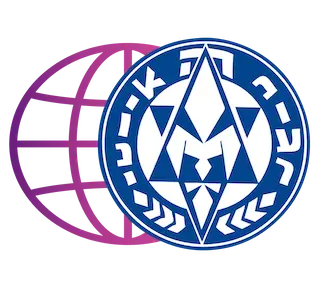Alex Bitterman, Mazkal Hanoar Hatzioni
How many times have we asked ourselves “what is Zionism today”? The very movement that led to the establishment of the State of Israel is constantly being redefined to give it a contemporary meaning and become a relevant concept.
Historically, there were many streams of Zionism, with different political and ideological nuances, but all of them addressing the same principle: to build a Jewish State in the Land of Israel. On the eve of the establishment of the State, the ultimate Zionist act was to make Aliya and work the land, settle in strategic locations and defend against threats. When I think of a Zionist act of that time, the story of Kibbutz Ein Hashlosha immediately comes to mind, which was founded by a “garin chalutz” (group of pioneers) of Hanoar Hatzioni from Latin America, and chose its location precisely near the border with the Gaza Strip, and with no resources available. Why? Because that was what was needed at the time. Even though they could have set up in another more central location, they chose to go to the most challenging location and where the national effort needed it.
Since then, “a lot of water has flowed down the river”, the kibbutzim have changed, society has developed, Tzahal improved, and the national needs of that time have been replaced by others. In recent years, the term “Zionism” has become synonymous with patriotism or working together for the good of the country.
Today, the time has come to redefine this concept.
The State of Israel, and the entire Jewish People, went through one of the most shocking and painful events in modern history. The massacre of October 7 of this year will be remembered as a dark, painful and frustrating episode, leaving society in a state of national trauma. The Israeli society is now forced to confront three major challenges as a result of these events: the uncompromising war against terrorism; the construction and physical rehabilitation of the affected settlements, while providing security for the residents; and the rehabilitation of Israeli society. The last two elements lead me to think of the need for an “updated version” of the concept of Zionism: “Zionism 2.4”, because, in my opinion, this will be the main challenge for all of us in 2024.
These days we are witnessing a high spirit of volunteerism in all sectors of society. People who are willing to give their time and even engage in manual labor, even in agriculture, as did the Zionist pioneers of that time. The connection to the land is once again gaining importance, and today it is a clearly Zionist act to work to save those Zionist initiatives, such as Kibbutz Ein Hashlosha and many others. Volunteering in barns or agricultural fields, actual physical labor, that will restore and help rebuild what was destroyed in the terrible attack of October 7. Construction, not with the help of “foreign labor” but with our own hands as a cohesive society.
The other element that we must redefine within the concept of Zionism 2.4 is social resilience. In the past year we have witnessed rupture and division in society, sectoral politics, lack of trust and in general lack of recognition of a common destiny as a society. Today, when we see the spirit of volunteerism and mobilization, and when we realize that there are many dangers that demand our cohesion as a society and as a country, we must not return to the divisive discourse and political atmosphere that characterized the country last year. We must seize the opportunity presented to us, after the most serious disaster of the State of Israel since its establishment, to rebuild it under a unifying motive agreed upon by and for all sectors of society.
I do not have the perfect formula or the ingredients that should be in the national rehabilitation plan. Each and every one of us must think, propose and ultimately build together the new conception that will lead us to a future of building a common destiny and recognition of the common roots of all sectors of society.
The updated version, Zionism 2.4, is needed today more than ever, with a pluralistic spirit, with a deep connection to our roots and with a vision of hope.











